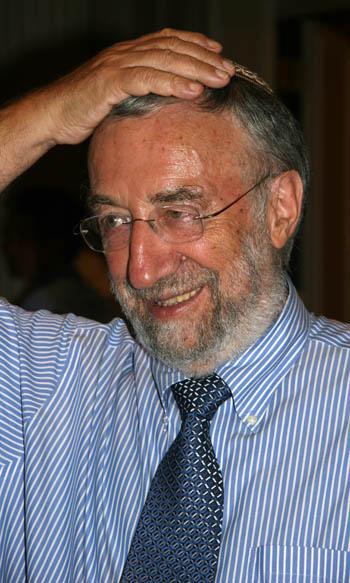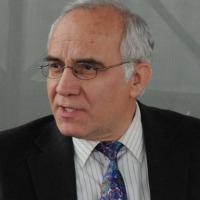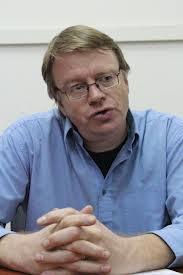
"Alfonso Vélez Pliego"
Puebla de los Angeles, México
Keynote speakers

|
Javier López Sánchez. Biodata
He belongs to the maya-tzeltal people and is both Chiapanec and Mexican. He graduated with distinction from the BA in Elementary Education for Indigenous Environments at the Universidad Pedagógica Nacional (UPN). Nowadays, he holds a Master's degree in Linguistics by the Centro de Investigaciones y Estudios Superiores en Antropología Social (CIESAS) from which he graduated with honors. His special qualifications include a series of diplomas in Public Management, Law, Indigenous Culture and International Education.
He has worked as an indigenous elementary school teacher in the maya-tseltal communities and has also given some university and postgraduate courses. At the same time, he has participated in diverse international organizations regarding teachers' training with an intercultural approach as well as in various congresses –national and international- about diversity and the intercultural approach applied on education, teachers' training and the development of pedagogical competences for assisting diversity, policies and linguistic rights. He has founded and coordinated several projects, some of them for designing and elaborating grammars and dictionaries in indigenous languages, some others for the BA in Intercultural Bilingual Education and others regarding preschool children literature in Chiapas. He has also been author, co-author and coordinator of different publications about diversity and intercultural education, teachers' training and linguistics and linguistic rights. Some of them are mentioned below: "The intercultural approach in education. Guidelines for elementary school teachers", (2006), CGEIB-SEP, Mexico; "Self-assessing and monitoring in and from school. Guidelines to systematize and document educational practice with the intercultural bilingual approach", (2006), CGEIB-SEP, Mexico; "Policies and foundations for intercultural bilingual education in Mexico", (2008), CGEIB-SEP, Mexico; "Sk ́op Bats ́ilWiniketik. Basic Grammar of the Tseltal Language", 2003), CONACULTA-UNEMAZ, A: C. He is besides a current member and advisor of diverse indigenous social organizations–national and international-. Additionally, he is member of the scientific committee of on line intercultural education in Madrid, Spain. Because of his contributions to both education and development of national indigenous languages, he has also been considered a distinguished visitor and has received recognition from governments and educational authorities at different levels (international, national, state and municipal). He has been in charge of the Pedagogical Department of Indigenous Education in Chiapas, and has also worked as Director of Education and Training for Educational Agents at the General Coordination of Intercultural Bilingual Education (SEP-Mexico). Furthermore, he was Research Director at the Indigenous Languages National Institute (INALI-Mexico) and currently, he directs the INALI.
Presentation title:
|

|
Por este medio queremos hacer de su conocimiento que por causas de salud el Dr. Bernard Spolsky ha decidido cancelar su participación en el V Simposio. Agradecemos su comprensión en esta situación que queda fuera de nuestro alcance.
Atentamente Comité Organizador Bernard Spolsky. Biodata
Bernard Spolsky was born in New Zealand in 1932 and educated at Wellington College, Victoria University College of the University of New Zealand, and the University of Montreal. He taught at high schools in New Zealand, Australia and England. He taught English for two years at the Hebrew University of Jerusalem, and completed military service in the Israel Defense Forces. He was assistant professor of Education at McGill University (1962-4), and assistant professor of Linguistics at Indiana University (1964-8). At the University of New Mexico from 1968-1980, he was Professor of Linguistics, Elementary Education and Anthropology and for six years Dean of the Graduate School.
He was appointed Professor of English at Bar-Ilan University in 1980, serving as Dean of the Faculty of Humanities from 1992-4 and Chair of the Department of English from 1995-6. On retirement in 2000, he was appointed Professor Emeritus. At Indiana University, he was director of the English as a Foreign Language Program and associate chair of the Research Center for the Language Sciences. At the University of New Mexico, he directed the Navajo Reading Study. At Bar-Ilan University, he founded and directed the Language Policy Research Center. He has been a Senior Associate at the National Foreign Language Center and Senior Research Scientist at the Center for the Advanced Study of Language, both at the University of Maryland. He was Editor-in-Chief of the international academic journal Language Policy, published now by Springer Science from 2002 until 2007, and is Publications Director of Asian TEFL and editor-in-chief of its journal. He is currently writing a book on religion and language management.
Presentation title:
|

|
Albert Bastardas-Boada. Biodata
Professor of "Sociolinguistics" and "Language ecology and language policy", and ICREA Academia researcher.
Coordinator of the research group of "Complexity, Communication and Socio/Linguistics", and director of the project "Globalization, Intercommunication, and Medium-Sized Language Communities". Right now my main research interests are (socio)complexity theory, and language ecology and policy for the medium-sized languages in the global era. Director of the CUSC - University Center of Sociolinguistics and Communication,UB, from its foundation in 1998 to 2010.
Presentation title:
|

|
Gunther Dietz. Biodata
Studied Social Anthropology, American Anthropology, Hispanic Philology and Philosophy at the Universities of Gotinga and Hamburg (Germany); in addition, his M.A. and Ph. D. in Anthropology were studied at the University of Hamburg. He has worked as a teacher at the Universities of Hamburg, Granada, Aarlborg (Denmark) and Gent (Belgium). He is currently a full professor of Social Anthropology at the University of Granada. He has performed ethnographic work on handcrafts and "indigenism" as well as on indigenous communities and ethnical movements in Michoacán (Mexico); also, about immigrant collectives, non-governmental organizations, social movements and multiculturalism in Hamburg (Germany) and in Andalucia (Spain).
His main interests comprise: indigenist policies and development projects in indigenous regions, ethnicity, interculturality, intercultural education and ethnic and/or regionalistsmovements, indigenous peoples and non-governmental organizations as new agents of development, participative methods for evaluating development projects as well as the contribution of ethnic movements –and other social movements- to democratization processes and those of self-managing development. He has carried on research stays at the Centro de Estudios Antropológicos, Colegio de Michoacán (Zamora, México),in the Anthropology Department; University of Hamburg (Germany); at the School for Postgraduate Interdisciplinary Research on Interculturalism and Transnationality; University of Aalborg (Denmark); at the Steunpunt Intercultureel Onderwijs, University of Gante (Belgium) and at the Center for Comparative Immigration Studies at the University of California in San Diego (USA). He leads the project "Diálogo de saberes, haceres y poderes entre actores educativos y comunitarios: una etnografía reflexiva de la educación superior intercultural en Veracruz" (InterSaberes), in colaboration with the Instituto de Investigaciones en Educación y la Universidad Veracruzana Intercultural granted by the Consejo Nacional de Ciencia y Tecnología (CONACyT).
Presentation title:
|

Hecho en México, Universidad Nacional Autónoma de México (UNAM), todos los derechos reservados 2013. Esta página puede ser reproducida con fines no lucrativos, siempre y cuando no se mutile, se cite la fuente completa y su dirección electrónica. De otra forma, requiere permiso previo por escrito de la institución. Créditos
